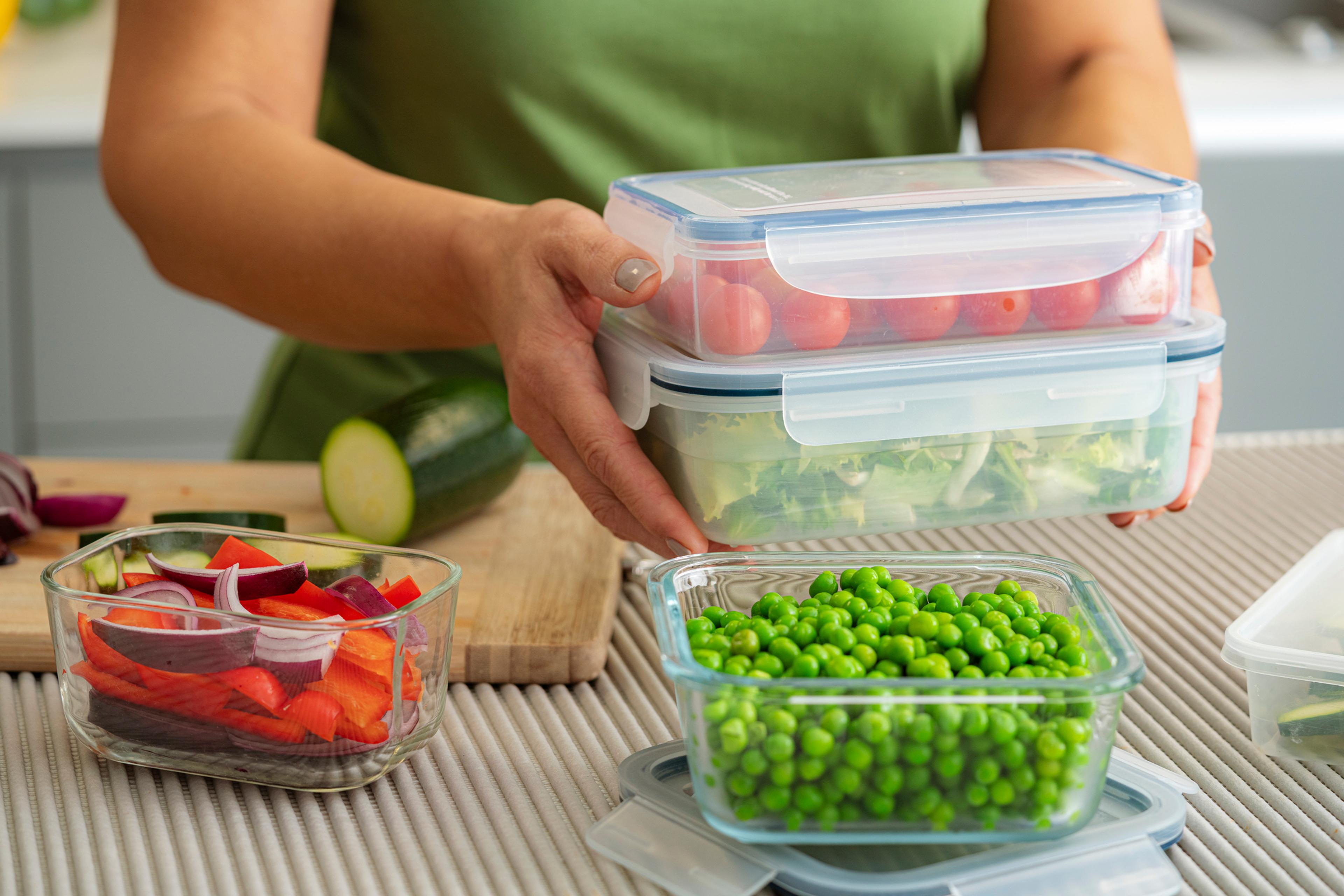How to Meal Prep for People Who Hate Cooking

Lauren Coin
| 3 min read

For many people, cooking may seem like a burdensome chore, especially if you have a busy schedule. Preparing meals ahead of time allows you to enjoy nutritious, home-made dishes without the daily hassle of cooking.
Follow this guide to start incorporating meal preparation into your routine.
What is meal prepping?
Meal prep, short for meal preparation, is the process of planning and preparing meals or portions of meals at one time. This practice could consist of batch or bulk cooking, creating individual portions, ingredient preparation or stocking up on freezer meals, according to the Cleveland Clinic.
Planning out your meals in advance can help with healthier eating habits, controlled portion sizes and maintaining a balanced diet. According to the National Library of Medicine, home cooking is associated with a reduced risk of Type 2 diabetes and other chronic conditions. Having meals at home may also prevent you from ordering takeout or swinging through the drive-thru, which can limit your intake of ultra-processed foods.
Consider your lifestyle
Meal prep looks different for everyone depending on your lifestyle and needs. Some aspects to consider include:
- How many people do you need to feed?
- What are your plans for the week?
- Are there any food preferences or special diets in the family?
Starting out with meal prep may feel overwhelming, so don’t feel like you need to prepare food for the whole month. The Harvard Nutrition Source advises starting with creating enough meals for two to three days of the week.
Stay organized
Decide on a day of the week to plan out and prepare your meals, as well as a day to grocery shop for ingredients, that works for your schedule.
For a balanced dish, make sure there’s a mix of protein, produce and complex carbohydrates. Start with simple recipes that don’t require a ton of ingredients.
After you’ve chosen what to prepare, make a list of ingredients you already have and ones you’ll need to buy at the store.
It’s best to limit meal prep to 3-4 days in advance, as most leftovers stay safe for this long. Most leftovers can be kept in the freezer for three to four months. While they’re safe indefinitely, frozen foods can lose moisture and flavor when stored for longer times.
For a full guide to food safety, reference the DHHS cold food storage chart.
Focus on ingredients
Oftentimes, multiple recipes will call for the same ingredients. Make the meal preparation process simpler by looking for overlap.
If you don’t like cooking, look for some ready-made ingredients to include in your dishes, such as rotisserie chicken, tuna packets or frozen fruits and vegetables.
Maximize your time
Make the most of your time in the kitchen by starting with the ingredients that take the longest to cook first. This often includes proteins, whole grains, beans and legumes and roasted vegetables, per the Harvard Nutrition Source.
While food is cooking in the oven or heating on the stovetop, multitask by chopping vegetables or washing fruit.
Keep it exciting
Meal prep doesn’t have to be boring. In fact, eating the same foods every day may not be good for your body, as you need a variety of vitamins, minerals, healthy fats and protein, per the Cleveland Clinic. Some ways to switch up your meals include:
- Adding herbs or spices
- Changing one ingredient in your weekly dish
- Incorporating one new recipe a week
Photo credit: Getty Images
Related:





